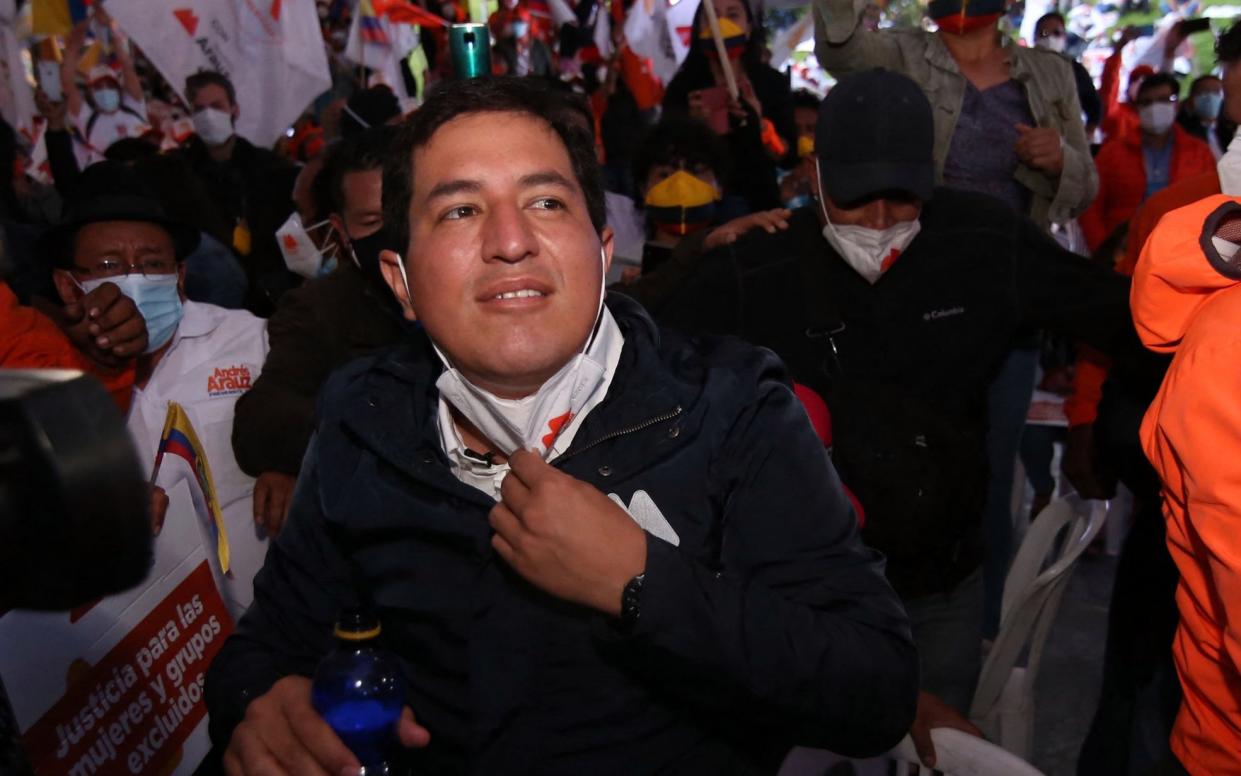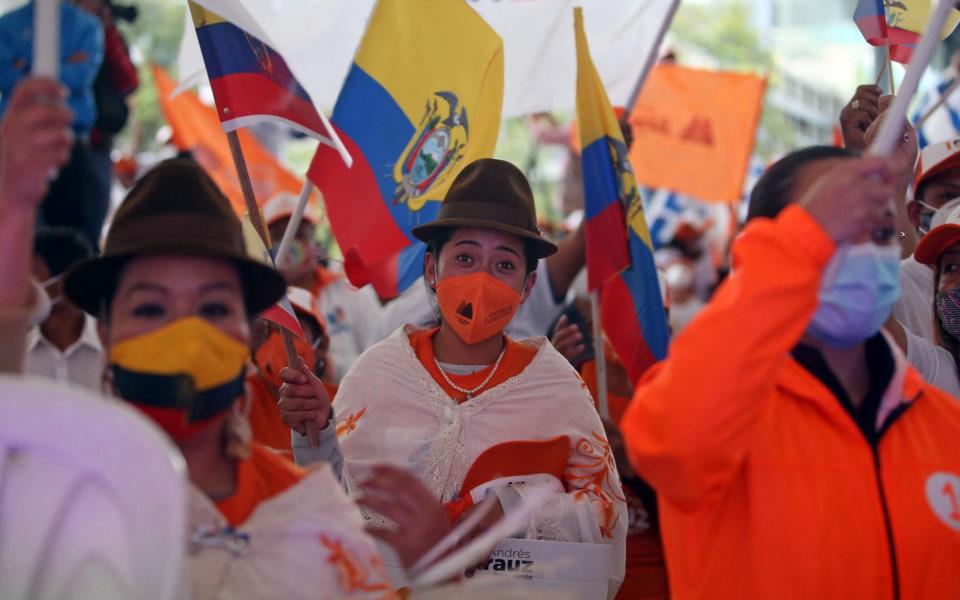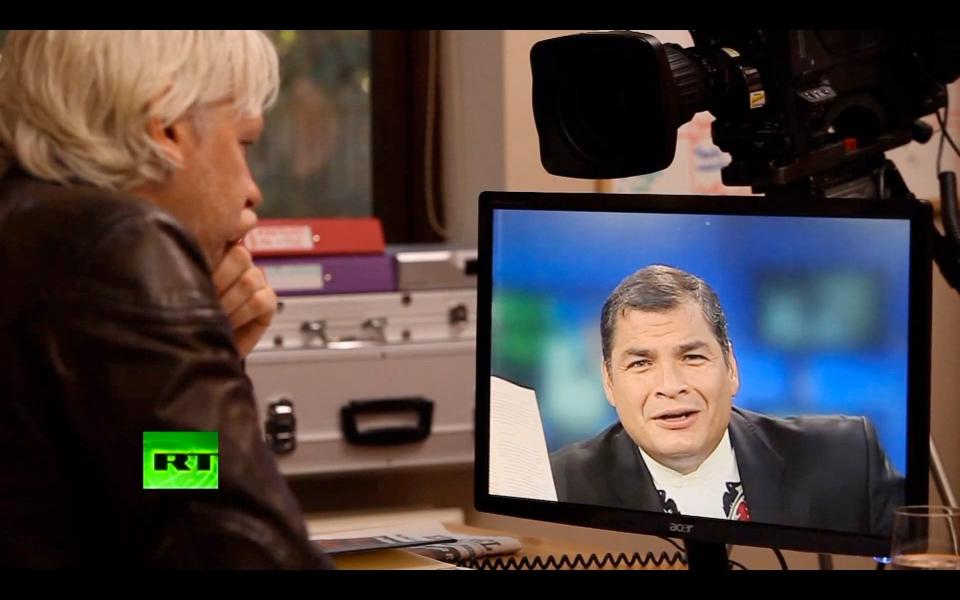Ecuador braces for return of socialism in presidential run-off

- Oops!Something went wrong.Please try again later.
- Oops!Something went wrong.Please try again later.
- Oops!Something went wrong.Please try again later.
Ecuador is bracing for the potential return of Rafael Correa, the domineering socialist former president who gave refuge to Julian Assange while cracking down on the free press at home.
His protégé, economist Andrés Arauz, 36, is running neck and neck in the polls against conservative banker Guillermo Lasso ahead of the Andean nation’s runoff election on Sunday.
At stake could be Ecuador’s free-market economic model and, some fear, its democracy.
Mr Arauz has sought to portray himself as his own man but is widely viewed as lacking the charisma and political skills of his 57-year-old mentor.
Many Ecuadorians believe that the former president, who last year was sentenced by a Quito court in absentia to an eight-year prison sentence for corruption, will be pulling the strings from his exile in Belgium, his wife’s homeland.
Should Mr Arauz win, he is promising to give away $1,000 to one million poor families, rewrite the constitution to shake up the justice system — possibly paving the way for Correa’s conviction to be overturned, allowing him to return to Quito — and a resumption of the heavy social spending of his mentor’s 2007-2017 presidency.

Some also fear a campaign of revenge against the media, prosecutors and members of current president Lenin Moreno’s government, which has dismantled much of Correa’s legacy, including abolishing the Superintendency of Information and Communications, a media “regulator” that fined critical journalists and even newspaper cartoonists.
“Rafael Correa has been threatening to settle scores with the people he is calling traitors,” says Sebastian Hurtado, an analyst in Quito.
“Arauz has promised to be more moderate but this is a system that worked well for them for 10 years. The temptation to return to that authoritarian model will be great.”
The vote comes at a grim moment for Ecuador, which has had more than 330,000 Covid-19 cases and saw its economy shrink by 9 per cent last year.

Even before the coronavirus hit, the Andean nation was struggling under an austerity programme necessitated by Correa’s years of lavish public spending, funded in part by Chinese loans that must now be repaid.
The campaign has been marked by harsh attacks between the two candidates, as they crisscross the country from the Amazon to the Galapagos Islands to rally support.
Mr Lasso, 65, has coined the catchphrase, “Andrés, don’t lie again!”
Mr Arauz, who was briefly a minister under Mr Correa, is alleging that Mr Lasso’s campaign is financed by the Bank of Guayaquil, Ecuador’s second largest commercial bank, something both Mr Lasso and the bank deny.
With the two candidates in a statistical dead heat, the supporters of Yaku Pérez, a Leftist with an environmentalist and indigenous rights agenda, who came a close third in the first round in February with 19 per cent of the popular vote, could be critical.
Mr Pérez has fundamental policy differences with Lasso but was also arrested five times for protesting against the Correa administration. This week he called on his supporters to vote for Mr Lasso to prevent the return of Correismo, which “criminalised and persecuted” its opponents.

